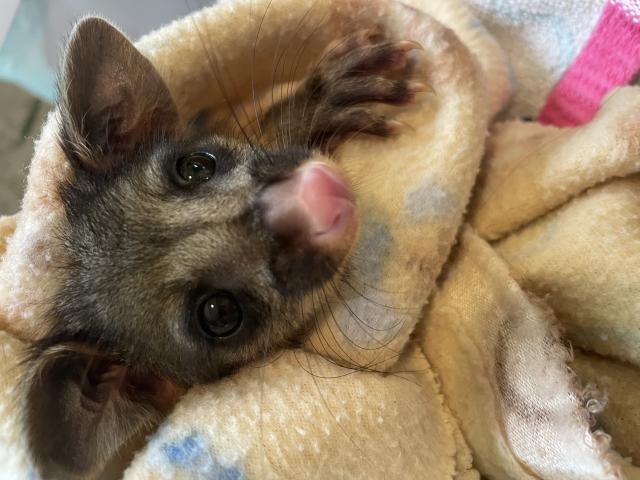Wildlife Victoria has called for urgent community support as case volume skyrockets this spring.
The wildlife emergency response service is experiencing a significant increase in calls from members of the public for wildlife needing assistance.
Spring is historically Wildlife Victoria’s busiest period of the year with several species in the height of their breeding season.
This year, the busy period started early with a record number of calls received in August compared to any other year in Wildlife Victoria’s history.
Lisa Palma, Wildlife Victoria CEO said emergency response operators are responding to a record number of calls, volunteers to the overwhelming number of animals that need to be rescued, transported or placed into care, and vet clinics are being inundated with wildlife that they simply do not have the capacity for.
This coincides with high August temperatures recorded across the state and the Bureau of Meteorology reporting ‘Mean minimum temperatures were above to very much above average for most of the state’s south and east.’
In the past two weeks, Wildlife Victoria’s Emergency Response Service received 5,413 calls from members of the public, a 34 per cent increase on calls received in the same period last year.
This is placing significant pressure on Wildlife Victoria staff and volunteers, as well as veterinary clinics across the state.
The surge in calls is mostly being driven by an increased number of orphaned native animals, often a result of their mother being injured or killed.
In the past six weeks, Wildlife Victoria recorded 766 orphaned animals, all of which require care until they are old enough to be released back into the wild.
Veterinarians are legally obligated to assess and treat injured wildlife under state legislation at no additional cost.
This has an immense impact on clinics that must attend to wildlife cases in addition to their existing caseload and at their own expense.
Dr David Andrews, Australian Veterinary Association CEO said that providing pro bono veterinary services is not sustainable, so we are calling for state governments to commit funding to develop and implement a framework that provides regulatory and financial support to the provision of veterinary services for injured wildlife.
“This would include all sectors of the profession, including charities and the private veterinary clinics,” he said.
Wildlife Victoria is calling on the public to be the eyes, ears and heart of the organisation.
Please keep an eye out for wildlife and if you see an animal that needs assistance, please call the Emergency Response Service on 03 8400 7300.
We’re also calling for donations to help keep our Emergency Response Service fully staffed and to train more volunteers who can attend to cases,” Ms Palma said.
Wildlife Victoria’s Emergency Response Service operates 24 hours a day, 365 days a year. If you encounter sick, injured or orphaned wildlife, please call on 03 8400 7300.
Wildlife Victoria is a non-profit organisation that relies on the support of the community for funding. Please make a donation to Wildlife Victoria at wildlifevictoria.org.au








